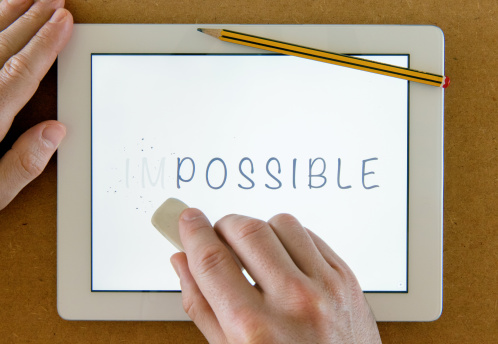
I find that what my clients want most is to return to a happy, peaceful life. Divorce is a place of upheaval with many unknowns. Will my kids be okay? Where will I live? Will I be able to make ends meet? Will I ever be able to retire? These questions and more interfere with the normal rhythms of life. The fear and anxiety of not knowing the answers cause distraction at work and sleeplessness at night. How can peace of mind be restored?
A good place to start is the practice of acceptance. By acceptance I mean merely acknowledging what is, without judgment or wanting it to be different … without resistance. Whenever you find yourself feeling a negative emotion such as anger or frustration, it is likely you are resisting an external circumstance … wishing that something or someone were different. While it is natural for human beings to resist the unpleasant, a lot of time and energy can be spent trying to control external circumstances beyond our control. Acceptance is merely acknowledging those circumstances and allowing what is in life to be as it is, without judging it as good or bad, or wanting it to be different. Practicing acceptance can help you let go of the pain, stress, anger and anxiety that inevitably accompany divorce.
Here are a few reminders:
- Acceptance does not mean giving up. Empowered action comes from a place of clarity and serenity.
- You can’t change other people, but you can change your response to them. While what your former spouse or partner thinks or feels is beyond your control, your mindful response to a situation can have a powerful effect.
- Resistance can get in the way of solutions. The inner stillness that comes with acceptance enhances your openness to previously unseen possibilities.
Genuine and lasting happiness and peace come from within. You alone are in control of how you will experience life moving forward from this very moment. It is your choice not to suffer.
Finally, here is a quote that has helped me through many of life’s challenging moments:
“Letting go doesn’t mean we don’t care. Letting go doesn’t mean we shut down. Letting go means we stop trying to force outcomes and make people behave. It means we give up resistance to the way things are, for the moment. It means we stop trying to do the impossible–controlling that which we cannot–and instead, focus on what is possible–which usually means taking care of ourselves. And we do this in gentleness, kindness, and love, as much as possible.”
-Melody Beattie
More Collaborative Law Posts
 I find that what my clients want most is to return to a happy, peaceful life. Divorce is a place of upheaval with many unknowns. Will my kids be okay? Where will I live? Will I be able to make ends meet? Will I ever be able to retire? These questions and more interfere with the normal rhythms of life. The fear and anxiety of not knowing the answers cause distraction at work and sleeplessness at night. How can peace of mind be restored?
A good place to start is the practice of acceptance. By acceptance I mean merely acknowledging what is, without judgment or wanting it to be different … without resistance. Whenever you find yourself feeling a negative emotion such as anger or frustration, it is likely you are resisting an external circumstance … wishing that something or someone were different. While it is natural for human beings to resist the unpleasant, a lot of time and energy can be spent trying to control external circumstances beyond our control. Acceptance is merely acknowledging those circumstances and allowing what is in life to be as it is, without judging it as good or bad, or wanting it to be different. Practicing acceptance can help you let go of the pain, stress, anger and anxiety that inevitably accompany divorce.
Here are a few reminders:
I find that what my clients want most is to return to a happy, peaceful life. Divorce is a place of upheaval with many unknowns. Will my kids be okay? Where will I live? Will I be able to make ends meet? Will I ever be able to retire? These questions and more interfere with the normal rhythms of life. The fear and anxiety of not knowing the answers cause distraction at work and sleeplessness at night. How can peace of mind be restored?
A good place to start is the practice of acceptance. By acceptance I mean merely acknowledging what is, without judgment or wanting it to be different … without resistance. Whenever you find yourself feeling a negative emotion such as anger or frustration, it is likely you are resisting an external circumstance … wishing that something or someone were different. While it is natural for human beings to resist the unpleasant, a lot of time and energy can be spent trying to control external circumstances beyond our control. Acceptance is merely acknowledging those circumstances and allowing what is in life to be as it is, without judging it as good or bad, or wanting it to be different. Practicing acceptance can help you let go of the pain, stress, anger and anxiety that inevitably accompany divorce.
Here are a few reminders:



